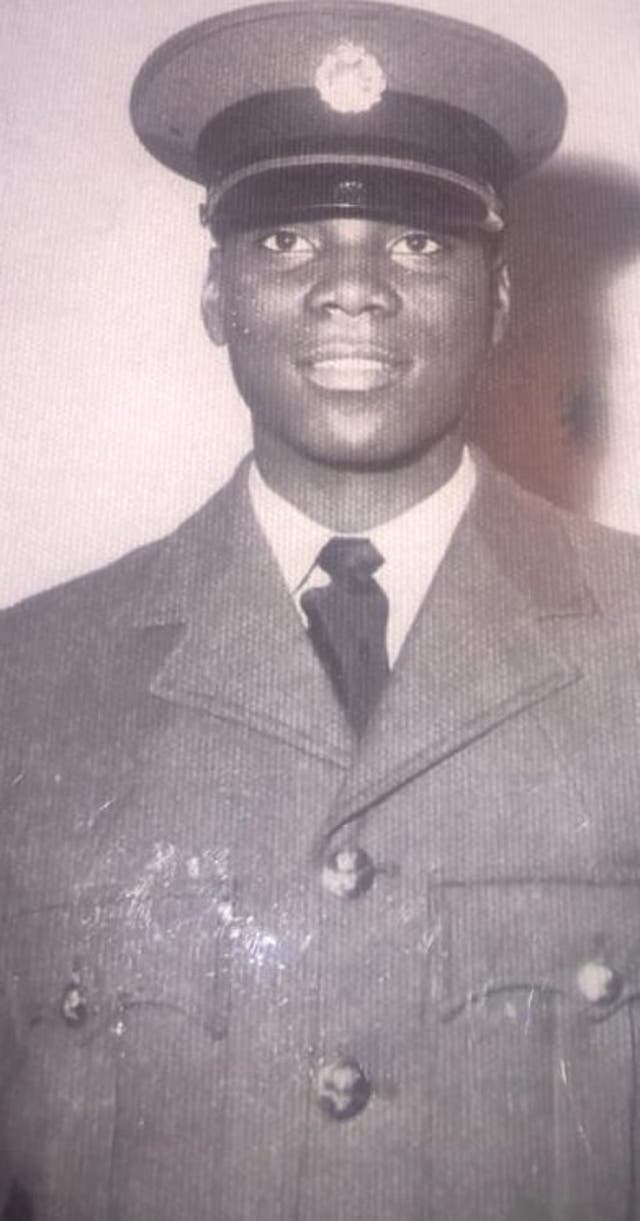Caribbean woman whose Windrush father served in Royal Air Force forced to shell out thousands to remain in UK
Exclusive: Sharon Vitalis, whose father came to Britain with Windrush generation and served in the RAF for 13 years, denied citizenship due to what lawyers term ‘discriminatory’ nationality laws

Your support helps us to tell the story
From reproductive rights to climate change to Big Tech, The Independent is on the ground when the story is developing. Whether it's investigating the financials of Elon Musk's pro-Trump PAC or producing our latest documentary, 'The A Word', which shines a light on the American women fighting for reproductive rights, we know how important it is to parse out the facts from the messaging.
At such a critical moment in US history, we need reporters on the ground. Your donation allows us to keep sending journalists to speak to both sides of the story.
The Independent is trusted by Americans across the entire political spectrum. And unlike many other quality news outlets, we choose not to lock Americans out of our reporting and analysis with paywalls. We believe quality journalism should be available to everyone, paid for by those who can afford it.
Your support makes all the difference.A Caribbean woman whose Windrush father served in Royal Air Force (RAF) for years has been forced to shell out thousands of pounds to remain in the UK due to what lawyers term “discriminatory” British nationality laws.
Sharon Vitalis, 48, who worked for the NHS for more than 15 years, has been refused status under the Windrush Scheme on the basis that she was born in Germany while her father was deployed in the country.
Her five siblings, all of whom were born in the UK, were British by birth.
Ms Vitalis, whose family moved back to the UK months after she was born, has twice been threatened with deportation and is now having to pay around £3,000 every three years to remain in the country with her two children and the rest of their relatives.
Lawyers say her Windrush case was refused on the basis of “needlessly complex” and “discriminatory” elements of British nationality law.

The Home Office has proposed to rectify this in its new Nationality and Borders Bill, which receives its second reading in parliament on Monday, but it is not clear when – or whether – this will be passed.
Ms Vitalis lived in Britain until the age of six, when she moved to the Caribbean with her mother and siblings to go to school there. She returned when she was in her early 20s and began working as a nurse.
She faced no problems for 17 years, during which she gave birth to a daughter in 1999 and a son in 2005. Her partner later moved to the US after the couple split.
In 2013, when Ms Vitalis went to collect her daughter from Gatwick Airport after a spell living with her father, she was stopped by immigration officials and told she was liable for deportation, before being taken to a detention centre.
She was released shortly after, but she was issued deportation proceedings and was therefore dismissed from her NHS job.
She successfully appealed her removal but was issued deportation orders again in 2017, at which point The Independent covered her case and the Home Office later revoked her removal.
I feel so anxious. I’m in limbo. I’m having to ask around for money just so I can stay with my family. What is the Home Office waiting for, for me to die?
When the Windrush Scheme opened, Ms Vitalis had been hopeful that it would enable her to obtain British citizenship, but her application was refused in January 2019 and again in February 2021.
The Home Office said she was not eligible for British citizenship because she was born outside the UK.
Ms Vitalis, who had to pay out £2,700 on immigration application fees and charges earlier this month, told The Independent: “I feel so anxious. I’m in limbo. I’m having to ask around for money just so I can stay with my family. What is the Home Office waiting for, for me to die?”
Her children, now aged 22 and 15, were both born in the UK but do not have UK status on the basis of Ms Vitalis’s lack of citizenship – meaning they are currently unable to travel or go to university.

“It’s tough for my kids. My daughter gets so frustrated, all her friends go away abroad. My son’s school wants to put him up for Oxford or Cambridge because he’s quite bright. I’m thinking, I don’t want him to not get a scholarship because of all this.”
Rejecting the prospect of leaving the UK, she said: “We’re not going anywhere. We have no family back in the Caribbean. Everyone is here.
“My dad was in the Air Force for 13 years. He was the only Black person in his battalion. For me to be going through all of this 48 years later – it’s an insult to his service. He must be turning in his grave.”
In the Nationality and Borders Bill, the Home Office has proposed adding flexibility to nationality law so that caseworkers can use discretion to register an adult as a British citizen in certain compelling cases.
Jacqueline McKenzie, of Leigh Day Solicitors, said this would help people like Ms Vitalis to become British citizens, describing UK nationality law as “needlessly complex and in many instances, discriminatory and often illogical”.
“It would seem perfectly normal that a father who was serving in the British armed forces and settled in the UK would expect his children to be British,” she added.
“These inconsistencies and conflation in laws around citizenship and independence cause real hardships to innocent parties, such as children born into these situations.
“These are the sorts of problems we hope to see resolved through the current Nationality and Borders Bill making its way through parliament.”
A Home Office spokesperson declined to comment on Ms Vitalis’s case.
The said: “The Windrush Scheme also provides for eligible people to apply for British citizenship free of charge. Where a person is not eligible for the Windrush Scheme, they may still apply for leave in the UK, or for British citizenship, in the normal way.”
Join our commenting forum
Join thought-provoking conversations, follow other Independent readers and see their replies
Comments